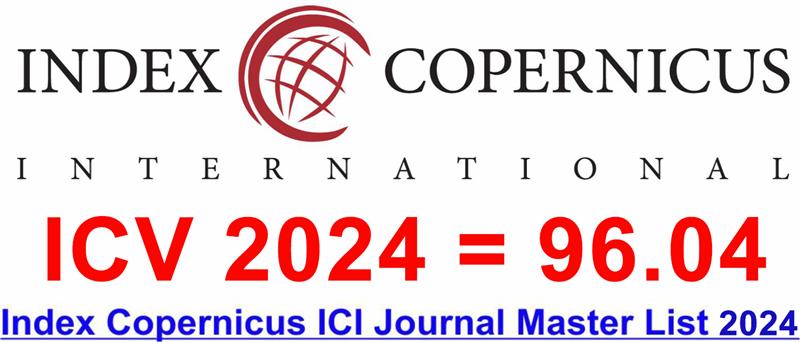Cultural Competence and Technology in ESL Education: A Case Study of Dubai’s Private Schools in the Digital Age
DOI:
https://doi.org/10.60072/ijeissah.2025.v3i02.007Abstract
Learning and Teaching methods continuously evolve considering the use of the latest techniques and technology along with modifying according to the requirements and needs. English as a language has gained immense popularity being the most understood globally. However, recent concern addresses the need for effective learning of English, incorporating new methodologies. Incorporating cultural competence is a new concept. Also, technological advancement has opened doors to learning and teaching, providing effective and flexible tools. This research aims to investigate how cultural competence and new media tools improve the learning of ESL (English as a second language) in Dubai’s private schools. To examine the role of inclusivity and technologies in learning English effectively survey shall be conducted to collect data. Teachers, students, and administrators of a private school in Dubai shall be included. The gathered data shall be analyzed in the light of available literature for conclusions and recommendations. Theoretical frameworks shall be examined by observing the reciprocal relationship between language acquisition and cultural understanding.
Keywords:
Cultural Competence, Globalization, TechnologyReferences
Ahmadi, D. M. R. (2018). The use of technology in English language learning: A literature review. International journal of research in English education, 3(2), 115-125. https://ijreeonline.com/article-1-120-en.html&sw=Mohammad+Reza+Ahmadi
AlGhawi, M. A. (2017). Gifted education in the United Arab Emirates. Cogent education, 4(1), 1368891. https://doi.org/10.1080/2331186X.2017.1368891
Alisoy, H. (2024). The impact of cultural differences on ESL learners' language acquisition. EuroGlobal Journal of Linguistics and Language Education, 1(1), 11-17. https://doi.org/10.69760/0qzswg04
ALOMARI, M. M. (2018). The Impact of ICT Integration on Teaching and Learning in ESL Classrooms in one of Abu Dhabi’s Middle Private Schools: A Case Study (Doctoral dissertation, The British University in Dubai (BUiD)).
Andrews, D., Walton, E., & Osman, R. (2021). Constraints to the implementation of inclusive teaching: a cultural historical activity theory approach. International journal of inclusive education, 25(13), 1508-1523. https://doi.org/10.1080/13603116.2019.1620880
Ashrafova, I. (2024). Culturally Responsive Teaching: Strategies for Promoting Inclusivity in the Classroom. Global Spectrum of Research and Humanities, 1(1), 100-110. https://doi.org/10.69760/gsrh.0101202409
Ayber, P. O., & Hojeij, Z. (2021). Promoting intercultural awareness through stories: A UAE case. Journal of Teaching and Teacher Education, 9(02), 59-69.
Evans, W., Gable, R. A., & Habib, A. (2021). Lessons from the past and challenges for the future: Inclusive education for students with unique needs. Education Sciences, 11(6), 281. https://doi.org/10.3390/educsci11060281
Fenuku, S. D., & Akpaku, E. (2024). The Impact of Standardized Teaching Methodologies on Student Learning and Teacher Autonomy in Ghanaian Schools. Journal of Linguistics, Literature, and Language Teaching (JLLLT), 3(2), 83-97. https://doi.org/10.37249/jlllt.v3i2.774
Gallagher, K. (2022). Early language education in the United Arab Emirates. In Handbook of Early Language Education (pp. 893-921). Cham: Springer International Publishing.
Garces-Bacsal, R. M., Tupas, R., Alhosani, N. M., & Elhoweris, H. (2024). Teachers’ perceptions of diversity and ‘others’ in United Arab Emirates (UAE) Schools. Pedagogy, Culture & Society, 32(1), 77-95. https://doi.org/10.1080/14681366.2021.2011774
Ghanad, A. (2023). An overview of quantitative research methods. International journal of multidisciplinary research and analysis, 6(8).
Gleason, H. A. (1961). Genetic relationship among languages. Structure of Language and its Mathematical Aspects, 179-189.
Kulshrestha, A. K., & Pandey, K. (2013). Teachers training and professional competencies. Voice of research, 1(4), 29-33. https://citeseerx.ist.psu.edu/document?repid=rep1&type=pdf&doi=41ab4fcc4dcab2ddb0cca466b07e5417da836a53
Kuo, M. M., & Lai, C. C. (2006). Linguistics across cultures: The impact of culture on second language learning. Online Submission, 1(1). https://eric.ed.gov/?id=ED496079
Luckin, R., Clark, W., Garnett, F., Whitworth, A., Akass, J., Cook, J., ... & Robertson, J. (2011). Learner-generated contexts: A framework to support the effective use of technology for learning. In Web 2.0-based e-learning: applying social informatics for tertiary teaching (pp. 70-84). IGI Global. https://doi.org/10.4018/978-1-60566-294-7.ch004
Lunin, M., & Minaeva, L. (2015). Translated subtitles language learning method: A new practical approach to teaching English. Procedia-Social and Behavioral Sciences, 199, 268-275. https://doi.org/10.1016/j.sbspro.2015.07.516
Marhamah, R., Daud, B., & Samad, I. A. (2017). Integrating target language culture into teaching-learning EFL. English Education Journal, 8(4), 488-502. https://jurnal.usk.ac.id/EEJ/article/view/9212
Mohammed, A. (2020). The impact of culture on English language learning. International Journal on Studies in English Language and Literature (IJSELL), 8(1), 21-27.
Muxlisaxon, Q. (2024). TEACHING IN CULTURALLY SENSITIVE ESL/EFL CONTEXTS. FORMATION OF PSYCHOLOGY AND PEDAGOGY AS INTERDISCIPLINARY SCIENCES, 3(35), 389-396. https://interoncof.com/index.php/italy/article/view/6702
Ng, C. F., & Ng, P. K. (2015). A review of intrinsic and extrinsic motivations of ESL learners. International Journal of Languages, Literature and Linguistics, 1(2), 98-105.
Ramzan, M., Oteir, I., Khan, M. A., Al-Otaibi, A., & Malik, S. (2023). English learning motivation of ESL learners from ethnic, gender, and cultural perspectives in sustainable development goals. International Journal of English Language and Literature Studies, 12(3), 195-212. https://ideas.repec.org/a/asi/ijells/v12y2023i3p195-212id4840.html
Shin, S. J. (2008). Preparing non‐native English‐speaking ESL teachers. Teacher development, 12(1), 57-65. https://doi.org/10.1080/13664530701827749
Tijani, K. O. (2011). Culture in English Language Classrooms: Emirati Students' and UAE Teachers' Perceptions (Doctoral dissertation).
Zamani, Z. (2019). Exploring culturally responsive leadership practices in international private schools in Dubai (Doctoral dissertation, The British University. https://www.proquest.com/openview/30038c6d96ca13c97d92980791994b33/1?cbl=2026366&diss=y&pq-origsite=gscholar
























